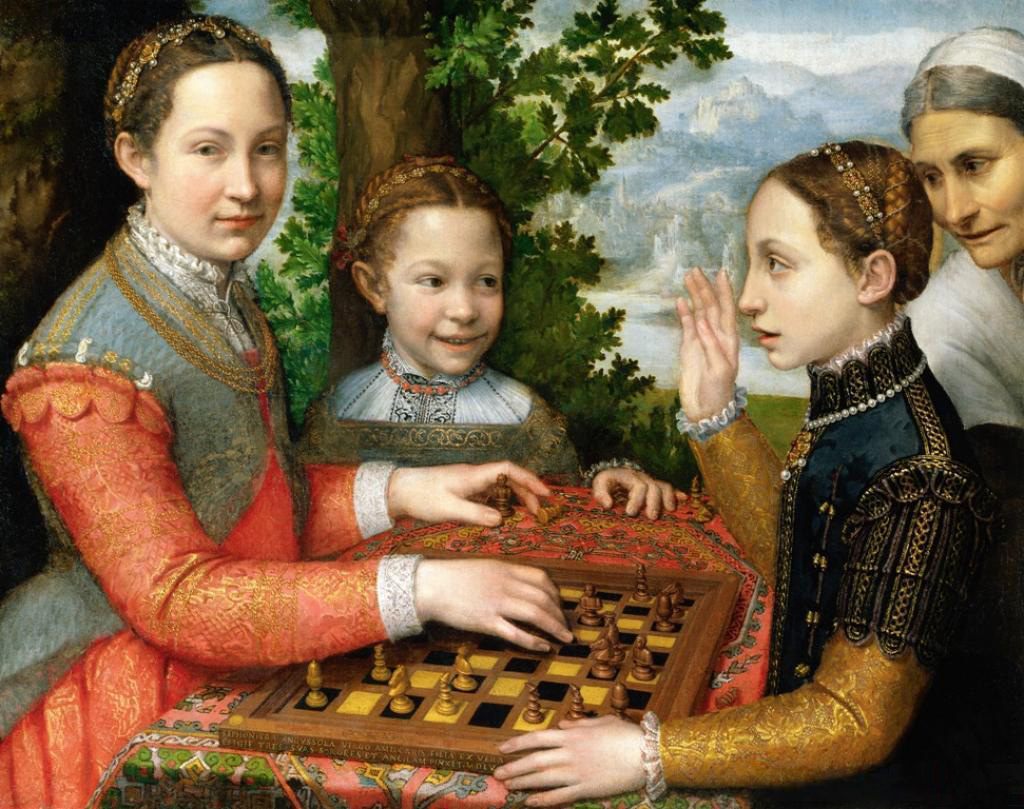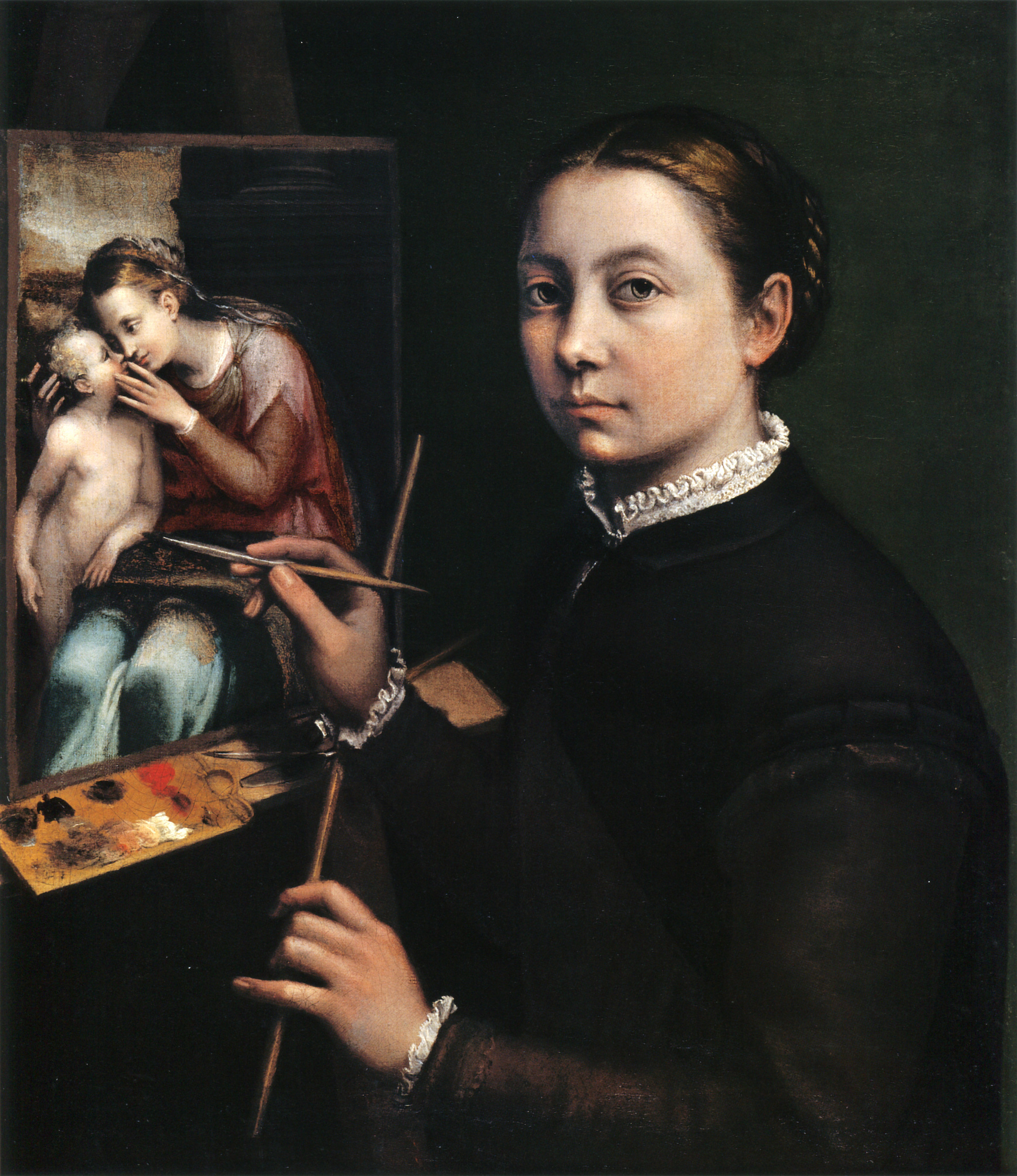Sofonisba Anguissola was an Italian Renaissance painter born in Cremona to a noble family, albeit a relatively poor one. She received a well-rounded education that included the fine arts, and her apprenticeship with local painters set a precedent for women to be accepted as students of art. As a young woman, Anguissola traveled to Rome, where she was introduced to Michelangelo, who immediately recognized her talent, and to Milan, where she painted the Duke of Alba. Elizabeth of Valois, the queen of Philip II of Spain, was a keen amateur painter, and in 1559 Anguissola was recruited to go to Madrid as her tutor, with the rank of lady-in-waiting. She later became an official court painter to the king and adapted her style to the more formal requirements of official portraits for the Spanish court. After the queen's death, Philip helped arrange an aristocratic marriage for Sofonisba. She moved to Palermo, and later Pisa and Genoa, where she continued to practice as a leading portrait painter, apparently with the support of her two husbands, living to the age of ninety-three. Her most distinctive and attractive paintings are her portraits of herself and her family, painted before she moved to the Spanish court. In particular, her depictions of children were fresh and closely observed. Today we present one of Anguissola’s most famous paintings, in which young women are depicted as intellectuals. Vasari even saw this painting hanging in the artist's family home in Cremona in 1566. The game of chess takes place in an idealized landscape that more resembles late medieval images of the game, rather than the more contemporary tavern gaming settings. On the far left, Lucia looks out at the viewer, dominating our gaze as her arm and obvious expertise dominate the chess board. She has removed two of Minerva's pieces from the game. Her opponent opens her mouth and raises her hand as if to speak. Their youngest sister, Europa, smiles gleefully at the match, carefully observed by an old maidservant on the far right. The three Anguissola women are members of a natural nobility capable of entertaining themselves, their status emphasized by the rich surface detail on their brocaded clothes and the fine Turkish carpet set over their table.




Artist’s Sisters Playing Chess
oil on canvas • 28.3 × 38.2 in
 Sofonisba Anguissola
Sofonisba Anguissola